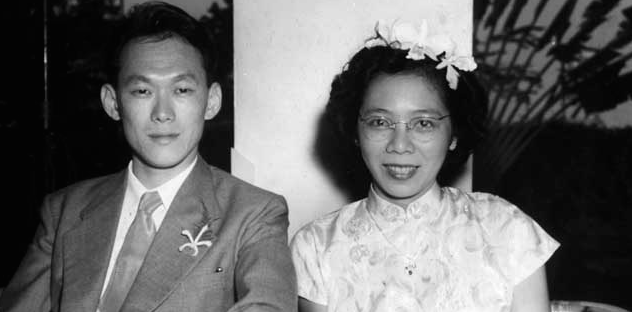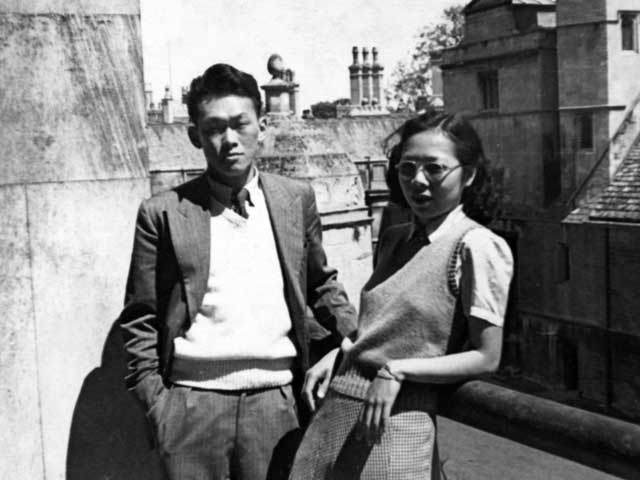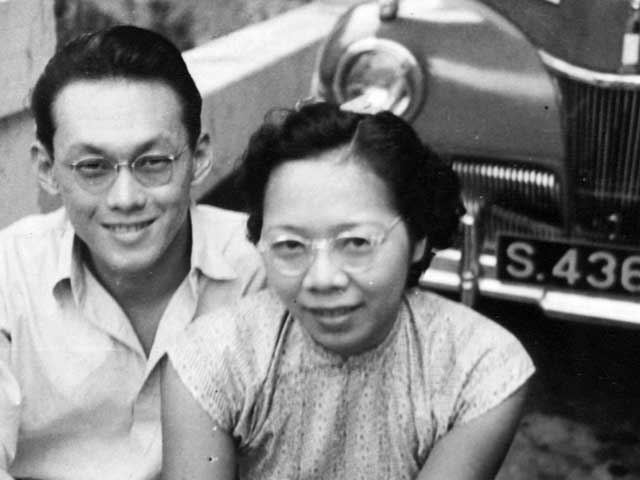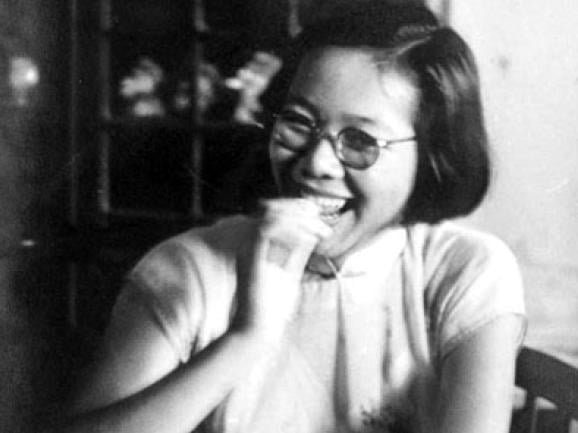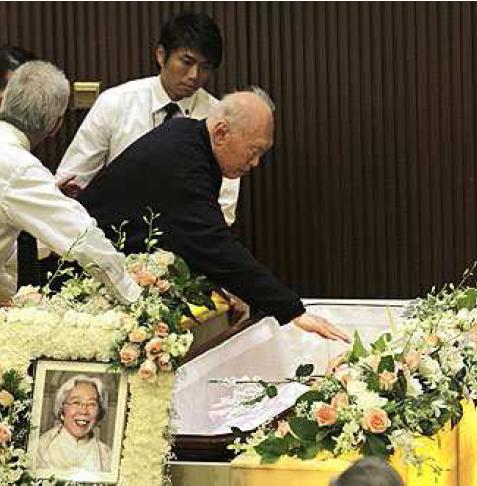Mr Lee Kuan Yew's funeral: From public mourning to private family farewell at Mandai

SINGAPORE - Mr Lee Kuan Yew's family said farewell to him on Sunday, March 29, evening, in an emotional ceremony at Mandai Crematorium.
The casket arrived at 6.10 pm and was borne aloft to Hall 1. Daughter Lee Wei Ling placed the memorial portrait in front of the casket.
The national flag draping the coffin was then lifted and folded by uniformed officers, in a drill common in state funerals. The flag was then handed to his eldest son Lee Hsien Loong, who is the Prime Minister.
The coffin cover was lifted, in a symbolic move marking the mourning of Mr Lee the public figure, to Mr Lee, the family man.
As his body lay in the open casket, family members took turns to share memories of their father and grandfather.
Prime Minister Lee Hsien Loong, the elder son, said: "We are gathered here to say our final farewells to Papa - Mr Lee Kuan Yew. After the formalities of the Lying in State and the State Funeral Service, in this final hour Papa is with his family, his friends of a lifetime, his immediate staff who served him loyally and well, his security team who kept him safe and sound, and his medical team who took such good care of him.
"So much has been said about Pa's public life in the past few days. His public life is something we share with all of Singapore, with the world. But we were privileged to know him as a father, a grandfather, an elder brother, a friend, a strict but compassionate boss, the head of the family."
PM Lee recalled how Mr Lee taught him to ride a bike. "Once when I was just getting the hang of balancing on two wheels, he pushed me off. I pedalled off across the field, thinking that he was still supporting and pushing me. Then I looked back and found that actually he had let go, and I was cycling on my own, launched, and he had let go! He was so pleased, and so was I."
Daughter Dr Lee, who wore a black dress, spoke lovingly of the father she is said to resemble most, among her siblings, recalling his stubborn insistence on not using a lift installed for him so he would not need to climb up and down the steps from the verandah at home to the car porch. She had inherited his "pugnacious" trait, she added good-humouredly.
She thanked his staff, especially the Security Officers who spent so much time with him. She recalled the time three of them had to interlock arms to perform the Heimlich manoeuvre when he nearly choked on a piece of meat. That bought him a few more months of quality life, she said.
Dr Lee, who has shunned the public spotlight in her private grief, said the last week had not been easy. Mr Lee died on Monday, aged 91.
When she saw this morning that the maid had moved Mr Lee's chair away from the dining table and placed it against the wall, she nearly broke down, she said. "But I can't break down, I am a Hakka woman."
Instead, she sat composed, and sometimes bowed her head to hide her emotions as other family members spoke.
Younger son Hsien Yang said: "Papa, thank you for being my own special father. Always there to guide, counsel and advise, every step of the way, but also prepared to step back and let me find my own wings and make my own way."
Li Hongyi, the elder son of PM Lee and wife Ho Ching, told of the one and only present his grandfather - whom he called Ye Ye - had given him: a camera. Hongyi said he went on to take many photographs and had a book printed. "When Ye Ye gave me that camera years ago, he wrote me a note. It was a simple note without any flowery language or cheap sentiment. He simply told me that he hoped I made good use of it. I hope I have."
All his life, he said, he wanted to emulate his grandfather, to be the kind of man his grandfather was.
He was emotional, tearing up as he said: "Ye Ye showed me that you could make a difference in this world. Not just that you could make a difference, but that you could do it with your head held high. You didn't have to lie, cheat, or steal. You didn't have to charm, flatter, or cajole. You didn't have to care about frivolous things or play silly games. You could do something good with your life, and the best way to do so was to have good principles and conduct yourself honourably."
Li Shengwu, eldest son of Hsien Yang and wife Suet Fern, spoke of his Ye Ye's influence over the development of his own beliefs. "Ye Ye, you chose to forsake personal gain and the comforts of an ordinary life, so that the people of Singapore could have a better life for themselves, and for their children and for their grandchildren. That Singapore is safe, that Singapore is prosperous, that Singapore is - for this we owe a debt that we cannot repay.
"Ye Ye - We will try to make you proud. Majulah Singapura."
The ceremony was attended by family members, friends and long-time staff of Mr Lee.
After the eulogies, family members filed past the open casket to lay a single red rose each in the coffin. Then the coffin was closed and his Security Officers who had guarded him in life, bore the coffin aloft and left the hall, accompanying him as long as they could, as he went on his final journey.
Mr Lee's body will be cremated. While alive, he had given instructions for his ashes to be mixed with his wife's. Mrs Lee died in October 2010. "For reasons of sentiment, I would like part of my ashes to be mixed up with Mama's, and both her ashes and mine put side by side in the columbarium. We were joined in life and I would like our ashes to be joined after this life."
Sent from my iPhone
